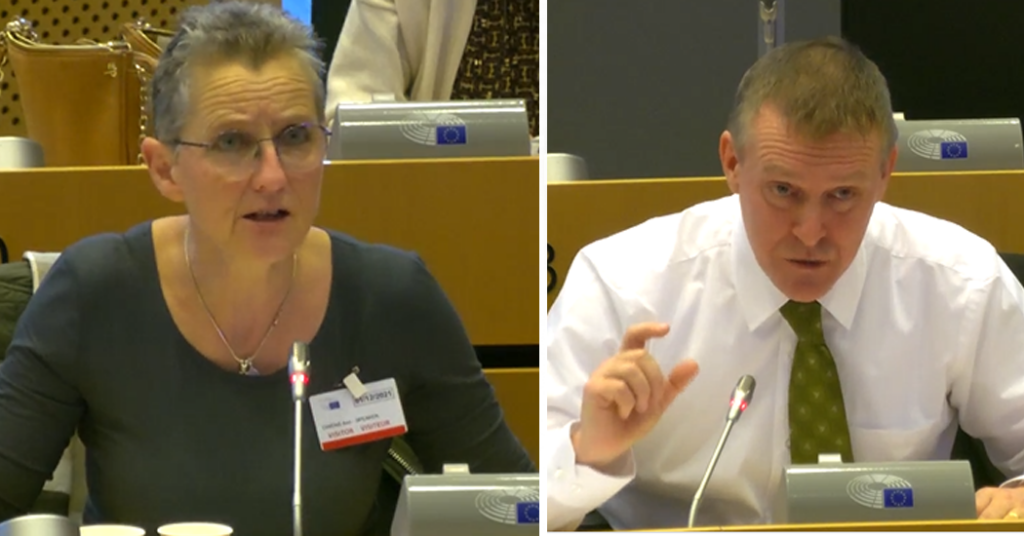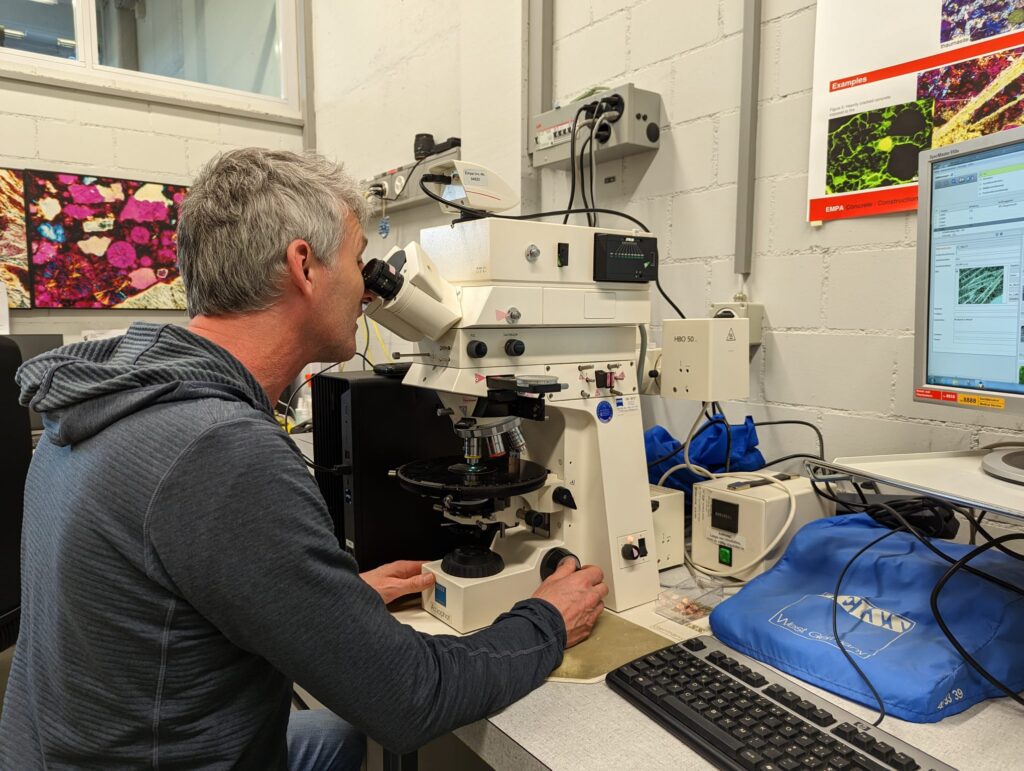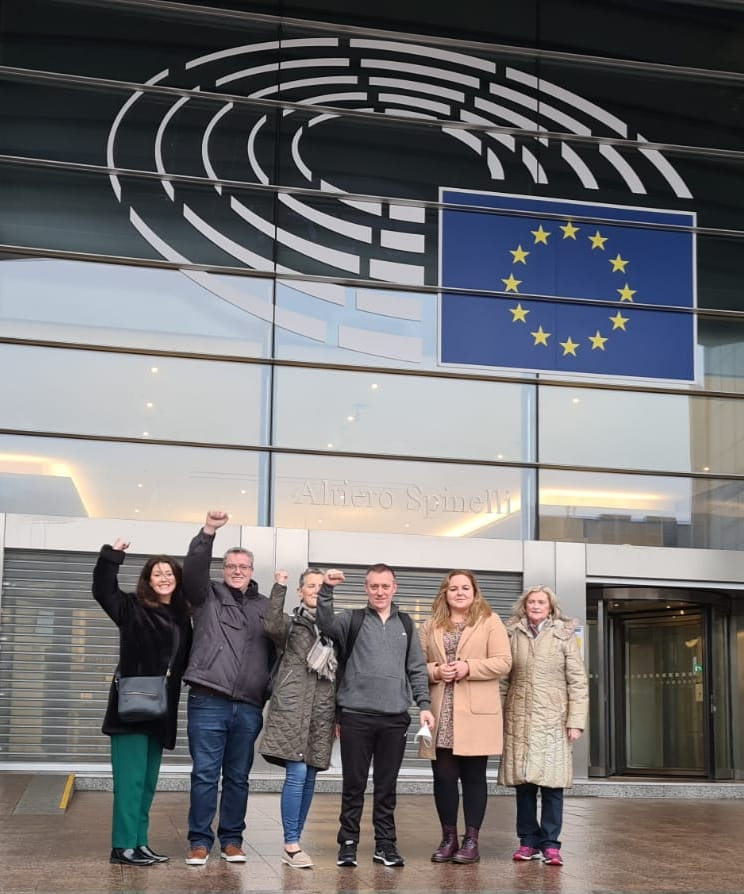A delegation of defective concrete blocks campaigners is returning to the European Union to engage the EU Commission to take infringement proceedings against the Irish Government.
The group will travel to Brussels to call on the EU Commission to sanction the Irish government over its alleged disregard of EU Regulations.
The crisis will once again be highlighted by Joe Morgan, Dr Eileen Doherty and Professor Paul Dunlop supported by The Left Group, MEP Luke “Ming” Flanagan and his team, accompanied by Dr Andreas Leemann – Group Leader of Concrete Technology Empa – Swiss federal laboratory for materials science, Switzerland, and Mrs Lisa Hone – Chairperson of Mica Action Group. The campaigners each played a role in the Defective Concrete Blocks Conference in Letterkenny in 2022.
Joe Morgan, an affected homeowner and former member of MAG has led this EU initiative over the last few years. Mr Morgan said the meeting represents the first opportunity to appeal to the EU Commission directly “to intervene and to ensure that those impacted are provided effective remedy to a crisis, fundamentally, caused through the lack of enforcement and implementation of EU Regulation pertaining to the manufacture and use of concrete products.”

Ann Owens and Joe Morgan presenting to the PETI Committee at the EU, Brussels in December 2021.
Mr Morgan said: “The Charter of Fundamental Rights of the EU states that ‘every person has the right to have the Union make good any damage caused by its institutions or by its servants in the performance of their duties’.
“We will argue that the EU has a responsibility to mandate the Irish Government to implement and enforce EU Regulation; and that they must insist quarries are fully assessed on an ongoing basis to guarantee products are fit for purpose. Equally the EU has a responsibility to ensure measures to remedy the mistakes of the past are effective and therefore incur no financial burden on behalf of the homeowner, who has done nothing wrong.”
Professor Paul Dunlop Ulster University, affected homeowner and researcher on the defective blocks issue said that he and Dr Andreas Leemann will take the opportunity to present the findings of their 18 month research to the EU Commission.
“These findings, which have been internationally peer reviewed and published in the leading global scientific journal ‘Cement and Concrete Research’ shows that EU12620/2002 (which limits Sulfur content in aggregate destined for construction to 0.1% if pyrrhotite is present) has been breached in the homes we tested by as much as 7 times the allowable limit. Importantly, if EU regulations were being followed and enforced, this could not have happened.”

Professor Paul Dunlop using optical petrographic and scanning electron microscopes to analyse Donegal defective concrete blocks at Empa, Switzerland in May 2023.
Dr Eileen Doherty, Lecturer Ulster University, affected homeowner, former MAG PRO said: “EU12620/2011 specifically states: “ongoing assessments should be carried out to clarify the constitution of aggregates used in concrete block manufacture”. Despite this the Irish Government themselves stated, in a response to a letter from the EU PETI Committee: “Given the limited resources available, enforcement action relating to the Construction Products Directive was generally carried out on a reactive basis. Typically, market surveillance activity was triggered on foot of acting on information received from complaints”.
“It begs the question, why since we have been campaigning and communicating this issue directly to Government since 2014, why these ‘complaints’ were never acted upon?”
Mr Joe Morgan said the meeting will mark an escalation of the EU campaign beyond the EU Parliament.
He said: “The Irish Government continues to ignore insights from homeowners and local authority representatives in relation to flaws in the Defective Concrete Blocks Grant Scheme. Homeowners have consistently reported shortfalls in funding to meet current day building costs, the exclusion of businesses from the scheme, the lack of support for vulnerable citizens e.g., elderly, disabled, families with kids, no alternative accommodation provisions (despite an acute housing crisis in Donegal and throughout the island of Ireland) and the omission of funding to replace foundations (despite no scientific evidence to suggest they are any less damaged than the blocks which they support).
“The Irish Government has had ample opportunity to listen and to learn from campaigners, homeowners, scientists and industry experts. Despite detailed submissions, they have ignored pleas to design and implement a scheme that will support families and businesses in rebuilding their homes, and their lives. Instead, they offer financial assistance equivalent to 60/80% of true rebuilding costs and ignore the need for modular homes to accommodate families whilst their homes are repaired.”








